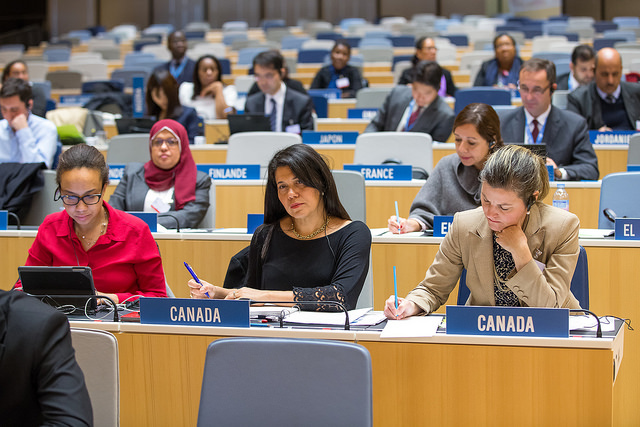Does intellectual property have a role in sustainable development? Of course it does! But the World Intellectual Property Organization, a UN agency, seems uncertain as to whether it has a role to play in implementing the UN’s Sustainable Development Goals (SDGs).

Photo: WIPO – Emmanuel Berrod.
As I note in a draft book chapter, WIPO’s preliminary analysis of the ways in which its work supported SDGs viewed most of WIPO’s work as contributing to SDG 9, the building of infrastructure and industrialization, as well as goal 8, that of economic growth.
Surprisingly few of WIPO’s activities were viewed by WIPO as contributing to the SDGs of education, hunger, protecting biodiversity, combating climate change, or ensuring human health.
“Developed” countries argue “that only a few goals apply to the work of WIPO, and others argue that there should be no ‘cherrypicking’ as all the goals in one way or another do apply to WIPO’s work as a UN agency.” The view of the “developed” countries, here, is completely ridiculous; it is clear that intellectual property plays an important role in relation to many SDGs, including those related to food and agriculture, health, innovation, climate change, biodiversity, and technology transfer.
The world intellectual property system, at present, also sometimes works contrary to achievement of the SDGs, by locking up agricultural innovation, inflating drug prices, stalling innovation, rewarding the invention and sale of dirty technologies, locking up biodiversity, and preventing technology transfer. There is no shortage of proposals for reform that would help to address these problems. (See the work of Peter Drahos, Matthew Rimmer, and Ahmed Abdel-Latif, among many others.) Industry players note the important role of intellectual property in potentially stalling climate-friendly innovation; this is why Tesla has adopted open patent policies to encourage the take-up and spread of electric vehicle technology.
WIPO and its member states should acknowledge the links between intellectual property and both sustainable and unsustainable development. The UN sustainable development agenda requires WIPO, as a UN agency, and its member states to build and retool world intellectual property institutions for sustainable development.
[Original post available here]
